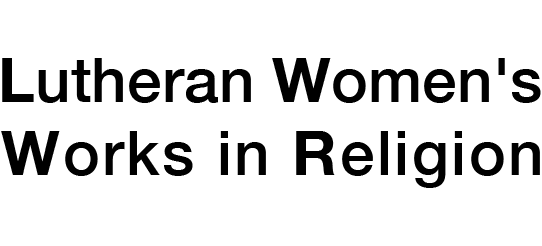Bibliography Author: Carol LaHurd
THEOLOGY
Carol LaHurd "Public and Private Realities: Women, Youth and Family Tradition" Spring In Word & World. vol. 16, no. 2, 1996 : 143-150Reflecting on her own encounters with Arab Muslim women, LaHurd describes theoretical principles and present day diverse realities to illuminate some modern issues for Muslim women, youth, and families.
THEOLOGY
Carol LaHurd "Holding Together the Gospel and Interfaith Relations in a Lifelong Journey" In Currents in Theology and Mission. vol. 32, no. 4, August 2005 : 245-255The essay consults interfaith encounters, diverse biblical portrayals of God, and theological responses to religious pluralism to answer the question of how a Christian can both be faithful to the Gospel and respond to persons of other religious traditions with respect, friendship, and shared social action.
THEOLOGY
Carol LaHurd "Two Popes, Two Churches: One Augsburg, One Gospel" Fall In Dialog: A Journal of Theology. vol. 44, no. 3, 2005 : 296-302Referring to her own experience teaching in Roman Catholic universities and with ecumenical relations and dialogue, LaHurd examines the significance for Lutherans of the papacy of John Paul II and Cardinal Ratzinger’s 2005 election as Pope Benedict XVI. Also considered are magisterial theology and the 1999 Joint Declaration on the Doctrine of Justification.
THEOLOGY
Carol LaHurd "One God, One Father: Abraham in Judaism, Christianity and Islam" Winter In Dialog: A Journal of Theology. vol. 29, 1990 : 17-24The essay compares and contrasts the stories and significance of the Abraham figure in the scripture and traditions of Judaism, Christianity and Islam and proposes how Abraham can be both a divisive and unifying factor for contemporary dialogue and relations.
THEOLOGY
Carol LaHurd "Striving Toward the Garden: The Concept of Peace in Islam" fall In The Journal of World Peace. vol. VII, 1990 : 11-16In contrast to popular misunderstandings of Islamic principles of warfare and of the concept of jihad, the article examines the layers of meaning of “peace” in Islam and the classical rules for external warfare in Islamic scripture and tradition.

